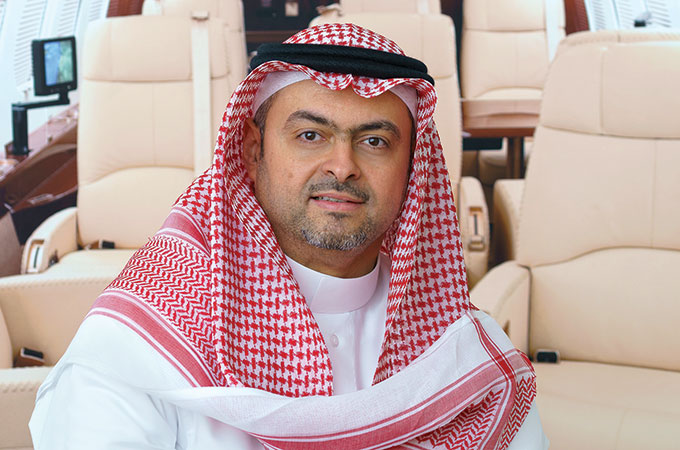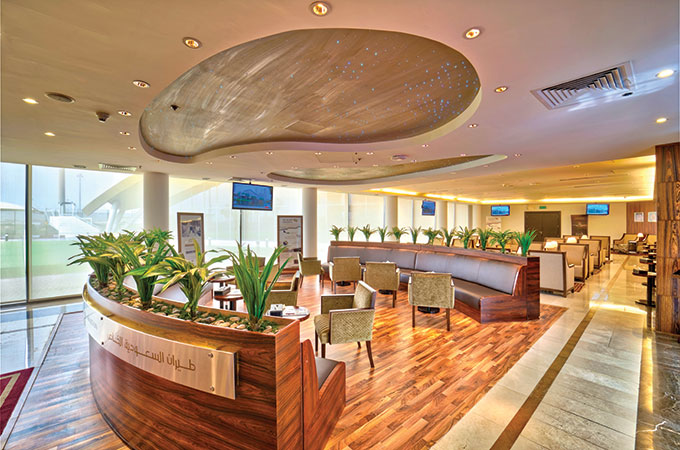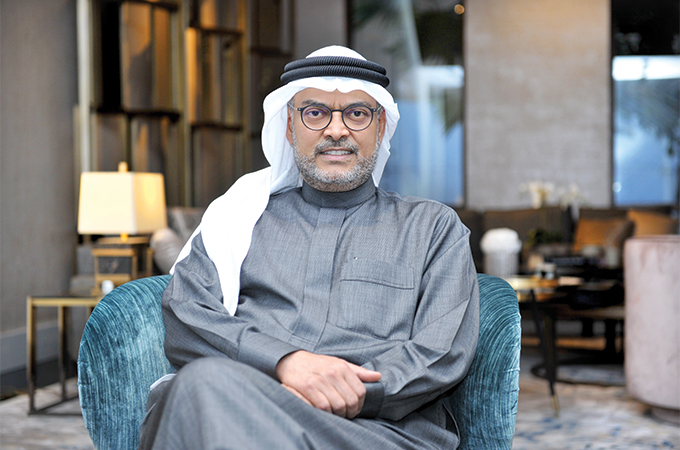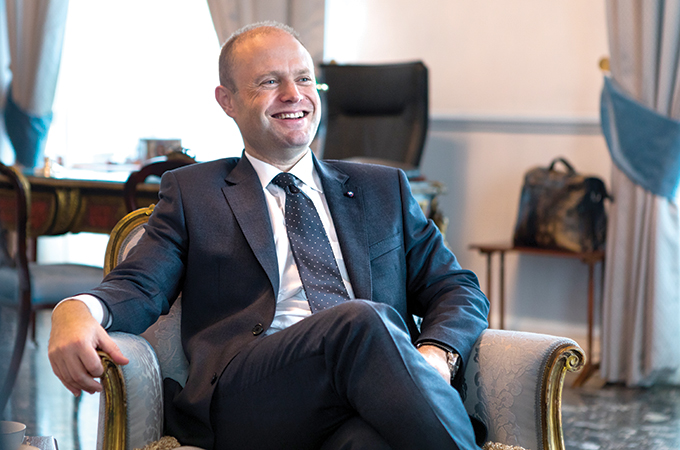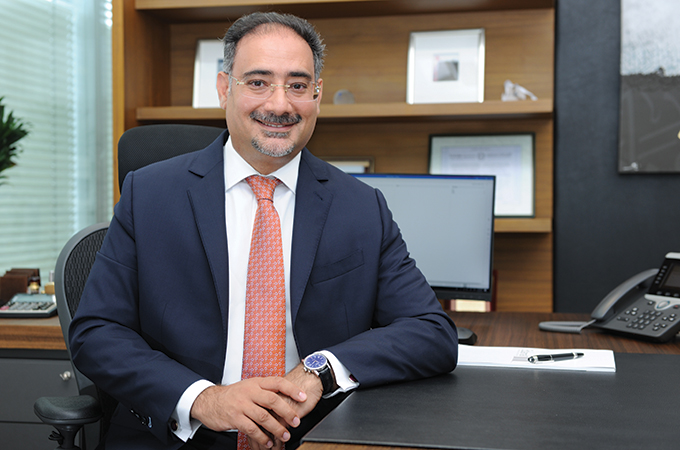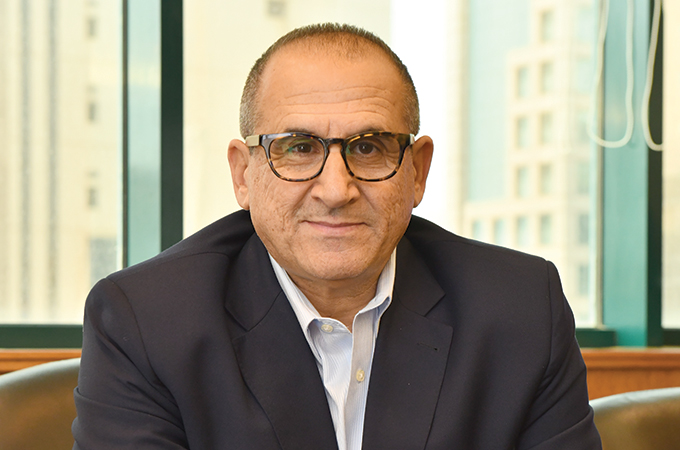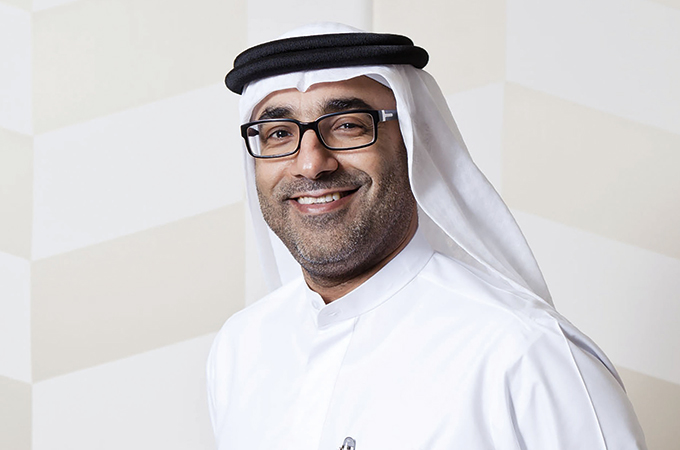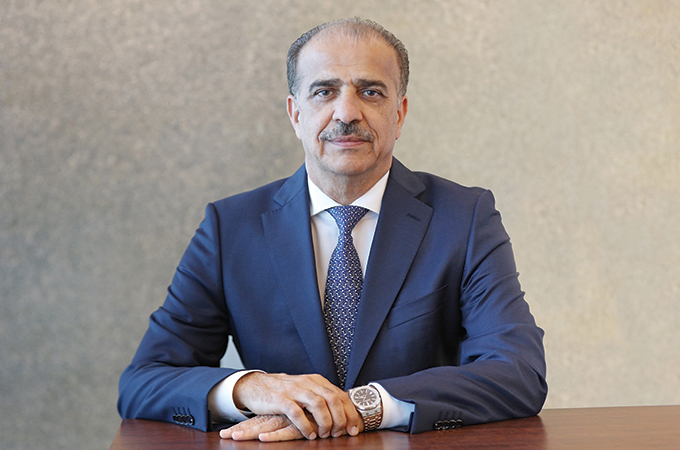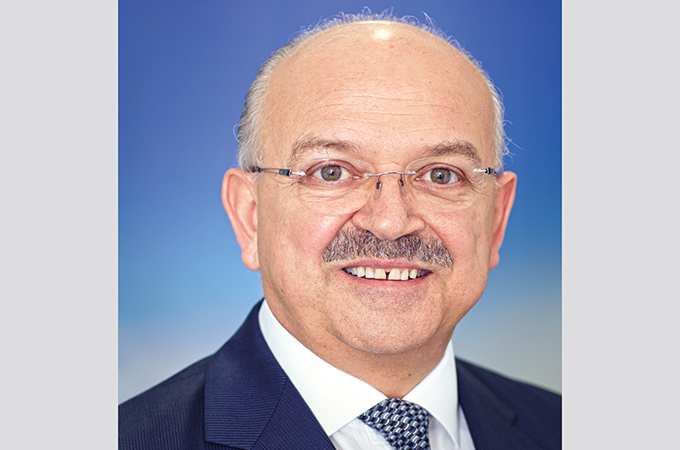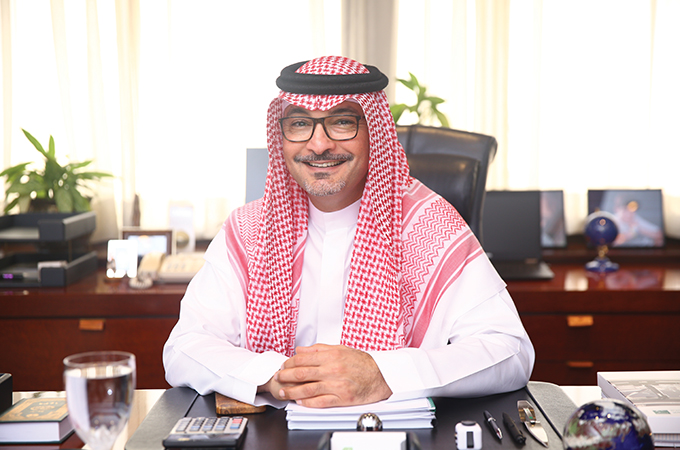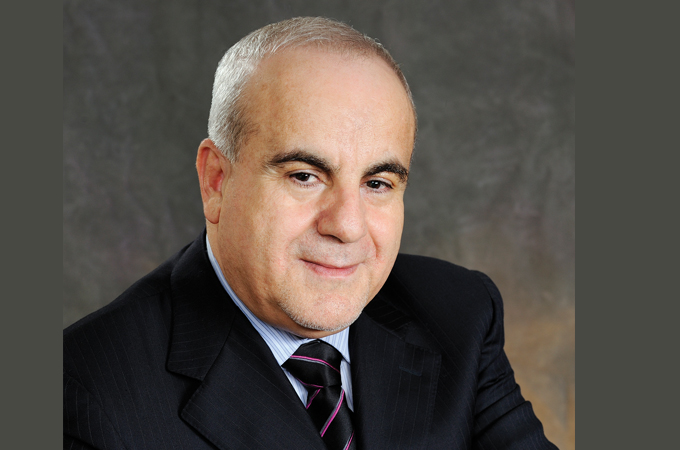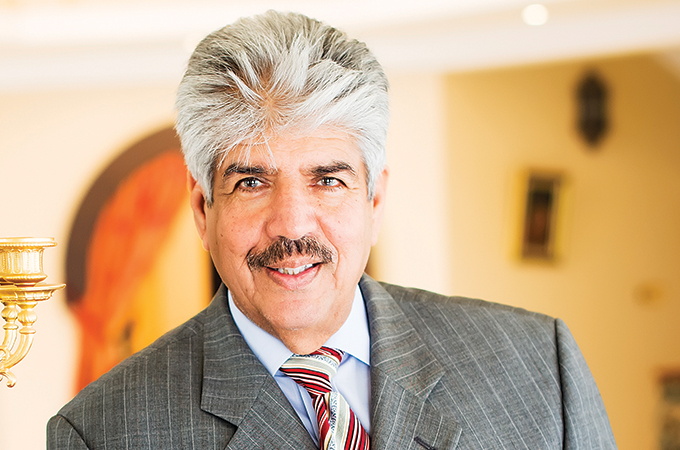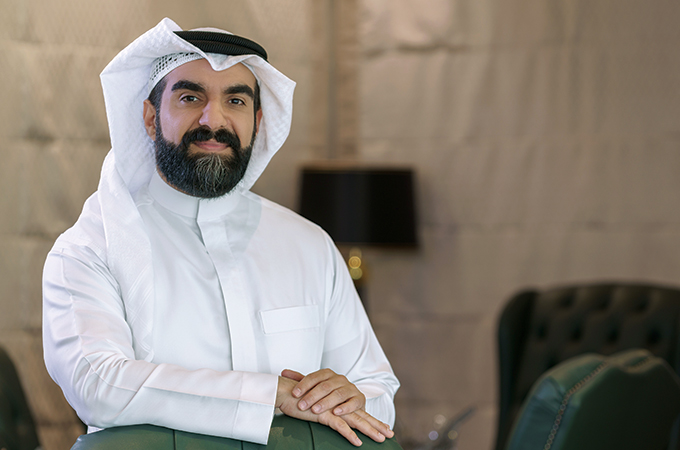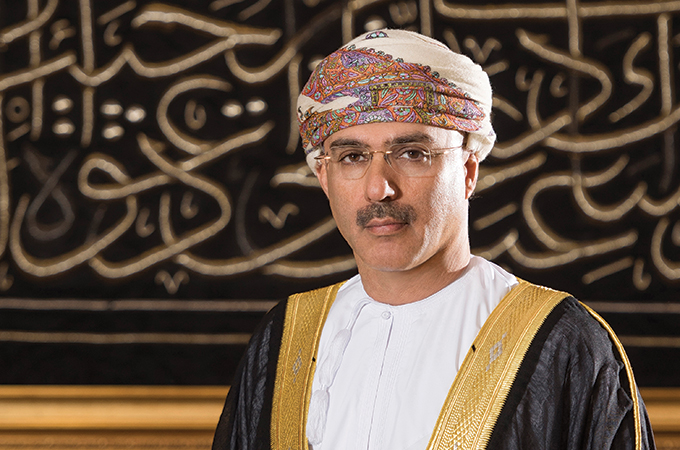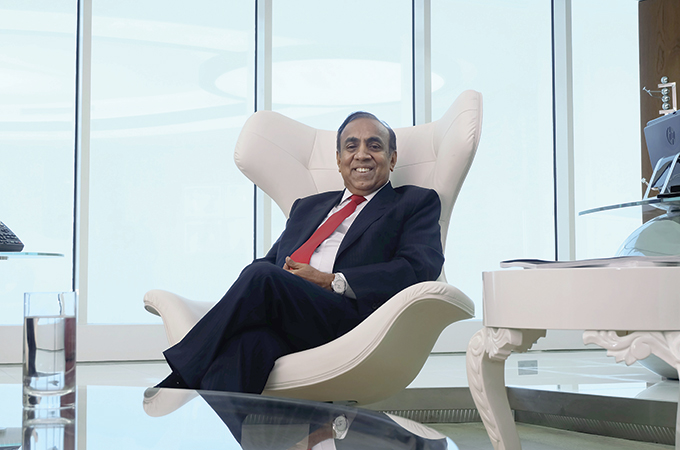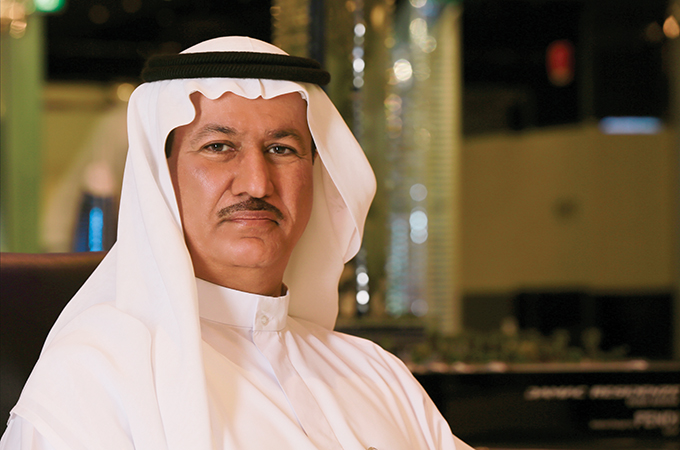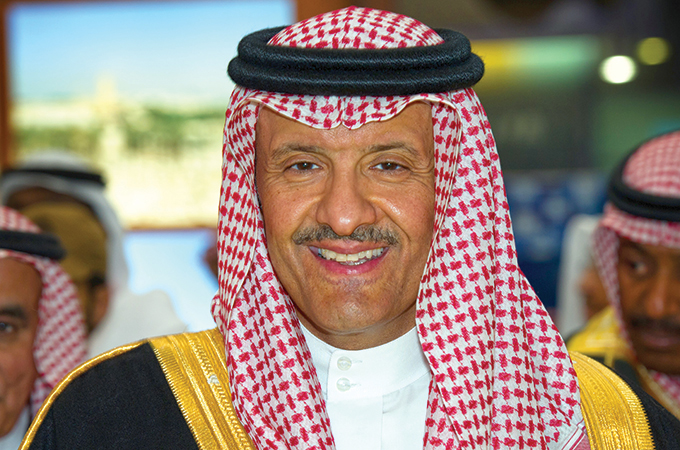Spring 2017
Saudia Private Aviation is going from strength to strength as it focuses on key areas of growth
Saudia Private Aviation (SPA) is strengthening its position across the region for its range of integrated luxury air travel services leveraging from its high reputation for safety and quality and increasing brand awareness.
SPA is part of Saudi Arabian Airlines (Saudia) group of companies. The group is led by Dr Ghassan Al Shibl, who was appointed Chairman of the Board in January this year, and Saleh Al Jasser, its Director General.
SPA has been performing well across all areas of its integrated operations, from private jet chartering, aircraft management, to ground handling and the innovative AlBayraq VIP luxury services operating between Jeddah and Riyadh.
With Saudi Arabia considered to have the region’s largest general aviation market having more than 500 private aviation aircraft and representing more than a 60 per cent share of the region, SPA has set itself high targets for its growth and ambitions.
In terms of enhancing the level and quality of its benchmarked services, SPA is taking a leadership role for innovative thinking and increasingly competitive products and services drawing from its scale of operations, fleet size and operational efficiencies and strategic partnerships.
This diversified approach is fully aligned to Saudi Arabia’s Vision 2030, inaugurated by HRH Deputy Crown Prince Mohammed bin Salman Al Saud, and commensurate with the kingdom’s National Transformation Programme 2020.
Faisal Ghazi Kayal, the Chief Executive Officer of SPA since 2013, has been spearheading the transformation of SPA over the past four years, implementing the various elements of its challenging privatisation process to build an autonomous and highly efficient integrated aviation services company. SPA is now a fully fledged separate company within the Saudia cluster of companies and its own profit-centre accountable to a board of directors and the scrutiny of shareholders.
The ongoing Saudia 2020 transformation strategy, of which he was part prior to assuming the SPA position, is set to transform each of the jewels in the crown of Saudia into separate world-class business organisations.
“SPA is now very much a private entity having completed the processes of privatisation moving from being a government-owned entity and entering a new phase of development as a subsidiary of the Saudi Arabian Airlines Holding Company,” Kayal tells Arabian Knight as he discusses the strategy behind SPA’s commercial success from his offices above the state-of-the-art private terminal overlooking the private apron at King Abdulaziz International Airport (KAIA) in Jeddah.
The SPA business model is to provide integrated private aviation revenue streams across five strategic areas which have widened from the original establishment of SPA in 2009. These strategic areas comprise chartering, fixed-base operations (FBO), aircraft management, ground handling services and the AlBayraq VIP scheduled airline services. The new company has already provided its first financial statement for 2015 as compiled and audited by Deloitte and has successfully negotiated shareholder agreements and legal requirements as part of due diligence processes for the transformation of SPA into an autonomous business.
PRIVATISATION STRATEGY
For several years, the Saudia group of companies has embarked progressively on a rigorous privatisation strategy of business transformation. These companies include Saudia, SPA, Saudia Aerospace Engineering Industries (SAEI), Saudia Royal Fleet, Saudia Ground Services, Saudia Cargo, Saudia Catering, Saudi Airlines Real Estate Development Company (Sared), Saudia Medical, and the Prince Sultan Aviation Academy.
Simultaneously, Saudi Arabian Airlines, the jewel in the crown, is being transformed into a holding company as part of the government policy for the privatisation of the national airline which was first established in 1945.
Since its establishment in 2009, SPA has emerged as a flagship organisation and as an autonomous entity separate to Saudi Arabian Airlines and to a large extent has been very much a separate business unit even before privatisation.
SPA’s impressive charter fleet has a global reach and comprises 10 aircraft including the thoroughbred Dassault Falcon 7X workhorse. SPA has four Falcon 7Xs, with each luxury aircraft able to carry up to 14 passengers and operate up to 11 hours non-stop at a range of 10,200 km cruising at high altitude.
The state-of-the-art Falcon 7X utilises advanced military technology with three powerful high-performance fuel-efficient engines and the aircraft is a global leader in safety standards and environmental concerns. The 7X is ideal for medium and long-haul flights with minimum turnaround times and is rightly considered as one of the most advanced private aircraft available in its class anywhere in the world.
Included in the SPA fleet is the Hawker Beechcraft 400 XP with a passenger capacity of six and a range of three hours, ideally suited for one-day trips for business people covering the kingdom’s 27 airports, the GCC states and regional markets such as Egypt.
Kayal points out that SPA’s recipe for success is based on four key “pillars” that articulate the scope and direction of its services.
These pillars inlcude Profitability, the Customer (offering unique experiences), Reliability (operational excellence), and Capability (internal Capacity), he says.
“From the outset, SPA has had clear objectives which were defined within a structured strategy to ensure our continuing successful operations with sustainable profitability which has led to our timely full privatisation,” he says. “Importantly, our restructuring has allowed SPA to develop all the fundamental institutional components required for a successful commercial airline from the business, operational and financial perspectives.”
He continues: “This successful turnaround also includes revenue diversification across our pillars of operation and a revenue uplift of one-third, by more efficient processes, innovation and new product development. SPA has continuously intensified its efficiency programmes resulting in savings of 25 per cent across maintenance, ground handling and catering services in recent years.”
A key component has been the implementation and operational deployment of an integrated enterprise resource planning (ERP) platform from SAP with a host of modules and intelligent dashboard implementations across all activities and its business segments from accounts receivable to payroll and accounts. This involved integrating the SAP system across all the legacy systems aligned to the demands of the workflow.
Kayal says that radical changes were required to deliver full privatisation with transparent financial systems. Implementing and deploying the ERP led to significant changes in the organisational dynamic not only in terms of streamlined operations but re-engineering the entire business model. This has led to total transparency of the operations in real time, with instantly available metrics for all business pillars.
“There are big challenges moving to a privatised entity and unlocking the potential in any organisation. One must have a clear road map and seek to change mind-sets and introduce layers of accountability. My computer science experience has taught me the importance of processes, decision-making and revenue management,” he says. “SPA, in many ways, is more efficient than a low-cost carrier and we provide a wealth of top level premium services but costs have to be factored into the business.”
In 2014, SPA’s leaders adopted a ‘back-to-basics’ approach to the business almost behind locked doors with hard questions being asked and total transparency as they looked at restructuring SPA to meet customer expectations and looked across at the global private aviation sector.
“We looked at best practices, involved international consultants, identified our key lines of business and our competitive advantages and weaknesses. We listened to our customers segmented into royal, governmental, corporate, business individuals, brokers and travel agents and critically examined our selling advantages in the kingdom and globally to align with their expectations.
“We brought in key performance indicators (KPIs) to measure our revenue streams and the performance of our executive management teams to obtain a true and objective picture of the business. And like a sailor, we are able to correct and make changes in direction as we have a transparency and real-time insight into the entire business that helps in our management decision-making,” Kayal elaborates.
HIGHEST STANDARDS
SPA also sets the highest standards for its fixed-base operations (FBOs) and ground handling services through its co-operation with Saudi Ground Services Company (SGS). This involves the four major FBOs in Jeddah, Riyadh, Dammam and Madinah plus a substantial presence in a further 22 domestic stations and representation in 60 global stations across 36 countries outside of Saudi Arabia.
This ensures operational safety, punctuality, and efficiency for aircraft movements and ground handling compliant with FAA (Federal Aviation Administration of the US) and EASA (European Aviation Safety Agency) certifications. These services cover departure and arrival documentation services, flight planning, crew processing, ground transportation and baggage handling, on-ramp aircraft services to inflight catering, entertainment and cleaning services. SPA’s integrated services include catering and aircraft management as well as ground handling.
SPA adopts a simple and transparent pricing structure for chartering its fleet with hourly rates, free ground handling up to two hours and 50 per cent for overnight charges. Its website is excellently designed and a great investment for the company.
SPA’s aircraft management provision includes having a single point of contact being provided for each aircraft owner covering safety, flight operations, ground handling, maintenance, logistics and invoicing and budgetary matters.
“SPA provides complete privacy for an aircraft owner with all the logistical support from catering to concierge services provided by our company. SPA offers owner usage only, owner usage with chartered services and charter usage with minimal owner usage, each customised to the client.
“We have a dedicated financial team for each client with invoices issued for all business transactions and funds paid into the individual’s account with transparent quarterly expense statements,” Kayal says.
In compliance with Saudi Arabia’s General Authority of Civil Aviation (GACA) safety, air navigation and operational regulations, SPA conforms to FAA, EASA and GACA regulations. SPA has a team of FAA experts providing the complete spectrum of aircraft maintenance services from airworthiness through to aircraft management, service schedules, upgrades, refurbishment to aircraft preparation.
SPA provides, with its four FBOs and affiliates, complete ground handling services from passenger and crew transport, marshalling and pushback to fuelling, cargo handling, medical lifts and ground support equipment.
In terms of actual flight operations, SPA provides a seamless range of services from flight itineraries, slot allocation, computer flight plans, crew assignment to parking slot allocation at arrival and departure as well as civil aviation management including navigation, overfly, landing approvals to air traffic control (ATC).
AL BAYRAQ
Another jewel in the crown for SPA is AlBayraq (the symbolic flag of the desert), the affiliated high-quality luxury service from Saudia with scheduled VIP flights between Riyadh and Jeddah operating on Airbus 319 aircraft featuring 48 all-business class seats. Launched in June 2016, this executive airbridge is proving popular with four regular daily flights between Riyadh and Jeddah.
SPA applies special touches to this high-end service with skilled sky chefs, state-of-the-art entertainment systems and limousine services available from the private terminals. It takes literally a minute to check in and deplaning is a dream. Kayal indicates that Saudia has plans to extend AlBayraq services to Dammam and is considering the Riyadh to Dubai route as well. As part of Saudia’s 2020 strategy, AlBayraq services are provided by Saudia in co-operation with SPA, utilising the VIP lounges at the private terminals in Jeddah and Riyadh with the service directed at individuals, corporates and government clients.
Kayal, who holds a degree in management information systems and a master’s in computer information systems in addition to an avionics diploma from Northrop University, first joined Saudia in 1992. From 2008, he was general manager in planning and scheduling for two years dealing with planning processes for a range of activities from forecasting passenger loads, allocating seat capacity with the optimum aircraft, to fully optimising fleet resources.
Later on, he was involved in the development of the Saudia 2020 vision and prior to taking the top position in 2013, was vice president for planning and revenue management at Saudia.
Kayal is rightly proud of what SPA is achieving not only in terms of profitability and efficiency but in terms of his vision for the future of the privatised company. He also emphasises the importance of building for the future and the economic and career opportunities that will be available for the generations to come.
“Everything is measurable and as part of our restructuring plan, we have brought in measurable indicators for our performance. My role is to both lead and manage and we all have lessons to learn on unlocking our potential in the journey to privatisation,” he concludes.
As the private aviation business is expected to grow substantially in the years ahead, SPA’s integrated provision in terms of charters, aircraft management, and maintenance seems well positioned for an accelerated take-off.



